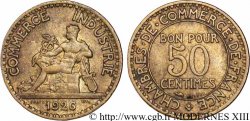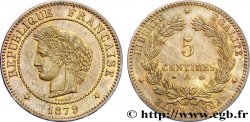fme_445901 - III REPUBLIC Médaille, École française d’Athènes
недоступный.
Товар уже продан в нашем интернет-магазине (2017)
Цена: : 280.00 €
Товар уже продан в нашем интернет-магазине (2017)
Цена: : 280.00 €
Тип Médaille, École française d’Athènes
Дата: 1898
Монетный двор / Город: Grèce, Athène
Металл: silver
Диаметр: 60,5 mm
Ориентация осей монеты: 12 h.
Гравер ROTY Oscar (1846-1911)
Вес: 108,15 g.
Век: lisse + Corne ARGENT
Комментарии о состоянии
Bel exemplaire avec une patine irisée, plus sombre au droit
Лицевая сторона
Аверс: легенда: POUR LA SCIENCE POUR LA PATRIE.
Аверс: описание: Femme assise dans des ruine avec une pioche entre ses jambes, brandissant une statuette antique.
Обратная сторона
Реверс: легенда: DAVELUY 1846 / BURNOUT 1867 / DUMONT 1875 / FOUCART 1878 // ÉCOLE FRANÇAISE D’ATHÈNES.
Реверс: Описание: Vue de l’Acropole au-dessus d’une vue de l’École française d’Athène avec une branche de lauriers.
Комментарий
Médaille intéressante et recherchée pour les 50 ans de l’École française d’Athène, dont les exemplaires en bronze argenté atteignent souvent plus de 300$.
En 2013, un exemplaire comparable en argent, a été vendu 500€ (plus frais) en vente publique par i-Numis.
L’École française d’Athènes ou l’École française d’archéologie d’Athènes est un établissement universitaire français, situé 6, rue Didotou à Athènes en Grèce, dont le but est de promouvoir l'étude de la langue, de l’histoire et des antiquités grecques.
Créée en septembre 1846 sous la Monarchie de Juillet, par le ministre de l'Instruction publique d'alors : Narcisse-Achille de Salvandy. L'école est un produit du philhellénisme et de la volonté de la France de se rétablir en Orient. À la fin du XIXe siècle, elle s'illustre en lançant plusieurs grands chantiers archéologiques dont ceux de Délos et Delphes..
En 2013, un exemplaire comparable en argent, a été vendu 500€ (plus frais) en vente publique par i-Numis.
L’École française d’Athènes ou l’École française d’archéologie d’Athènes est un établissement universitaire français, situé 6, rue Didotou à Athènes en Grèce, dont le but est de promouvoir l'étude de la langue, de l’histoire et des antiquités grecques.
Créée en septembre 1846 sous la Monarchie de Juillet, par le ministre de l'Instruction publique d'alors : Narcisse-Achille de Salvandy. L'école est un produit du philhellénisme et de la volonté de la France de se rétablir en Orient. À la fin du XIXe siècle, elle s'illustre en lançant plusieurs grands chantiers archéologiques dont ceux de Délos et Delphes..








 Cообщить об ошибке
Cообщить об ошибке Распечатать страницу
Распечатать страницу Отправить мой выбор
Отправить мой выбор Задать вопрос
Задать вопрос Consign / sell
Consign / sell
 Информация
Информация



